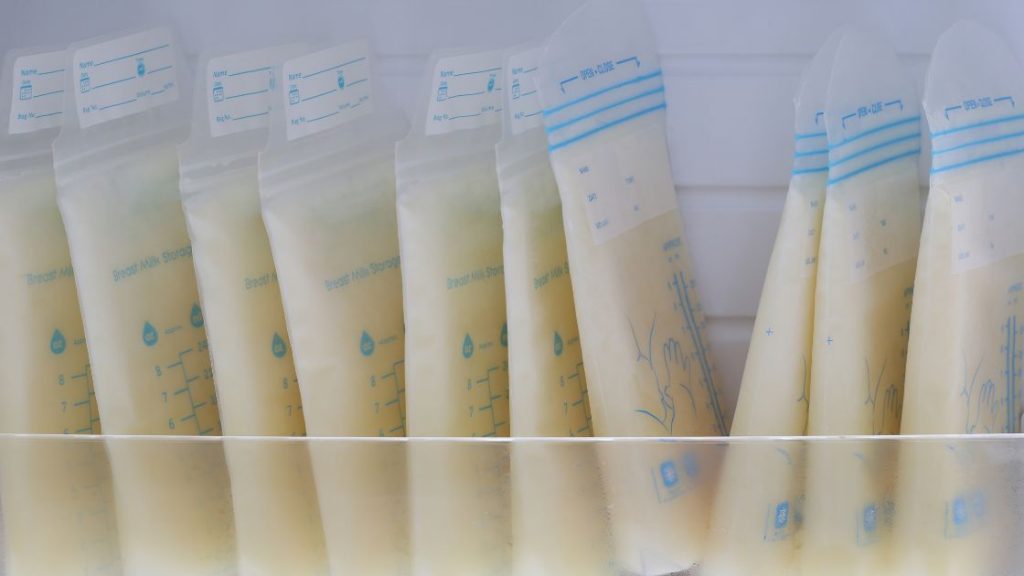If you will be away from your baby for an extended period, pump or manually express your milk while you typically breastfeed your baby. This will assist you in maintaining your milk supply so that you can continue breastfeeding even if you return to work or school.
Plus, breast pumping milk storage safely and adequately will ensure that your baby absorbs all the essential nutrition while you are away. This also guarantees your baby’s health.
Ways To Store Breast Pumping Milk Safely
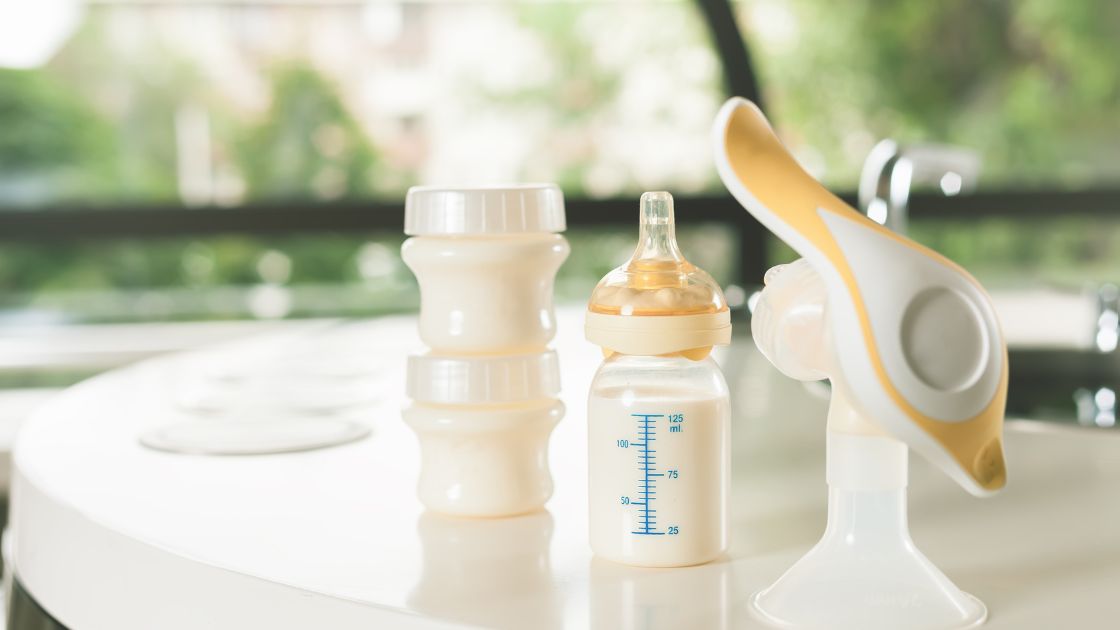
Aim to help mothers ensure a source of nutrition for their little ones. The method is usually applied to express milk to stimulate or store milk for newborns to use gradually. However, you should note the following:
Before Pumping Breast Milk
The hygiene element is very important when storing and preserving breast milk and during the initial pumping or pumping step. The mother should note the following before expressing or pumping milk:
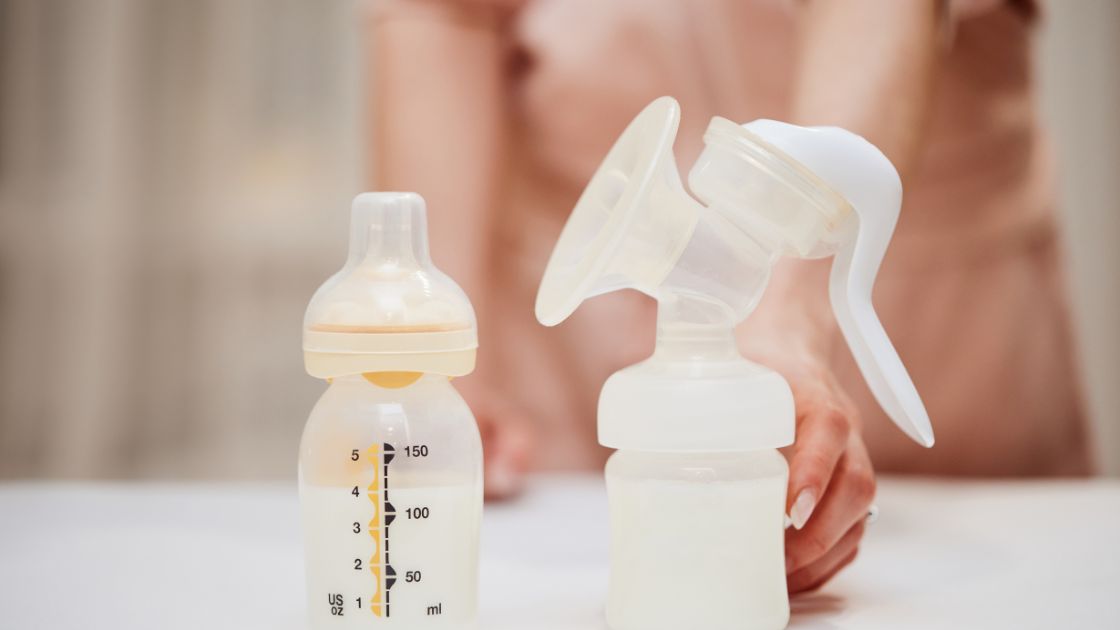
Store Breast Milk After Pumping
Breast milk storage items is one of the factors affecting the best breast milk storage. Nursing mothers should only store milk in the following containers:
Choose The Suitable Milk Bottles Or Bags
Storage Time For Breast Milk
In fact, many cases of babies cannot breastfeed directly, so mothers have to express or pump milk. Therefore, the problem of preserving breast pumped or expressed milk at room temperature is how many hours can be left out?
Thus, it is always a concern for many breastfeeding mothers. So how many hours does breast milk last? Hence, WHO and UNICEF have given recommendations to answer the question of how long breast milk should be stored as follows:
Types of Brest Milk | Storage Temperature | Storage Time Limit |
|---|---|---|
Newly pumped or expressed breast milk out in the open | Room temperature | Up to 4 hours if not |
Cooler or | Varies | Up to 24 hours |
Newly pumped or expressed | About 40° F | Up to 4 days, ideally |
Freezer | About 0° F | |
Thawed breast | About 40° F | |
Thawed breast | Room |
How Long Does Breast Milk Last At Room Temperature?
The kind of breast milk will determine how long it can keep at room temperature.
If your newborn has leftovers after feeding and does not complete the bottle, it must be utilized within two hours. You must discard it after this period of time because there are too many germs!
You should store breast milk in small quantities and with small capacities so that your baby consumes the entire amount at each feeding. This might help avoid wasting breastmilk.
How Long Does Breast Milk Last In The Fridge?
The kind of breast milk will determine how long it may be stored in the refrigerator:
Once more, if your baby has any leftovers after feeding, it must be consumed within two hours.
How Long Does Breast Milk Last In The Freezer?

The best time limit to use breast milk is within six months. However, you can also keep it in a refrigerator with a separate freezer for up to 12 months at 0°F or 18°C.
Moreover, moms should use breast milk as soon as possible since storing it for a long time will reduce its vitamin C. Your freezer should be set to a temperature of around 0° F. The ideal way to store it in the freezer is at the rear, farthest from the door, where temperatures are most constant.
Tips For Storing And Preserving Breast Milk In The Refrigerator
Guiding Defrosting Frozen Breast Milk Safely
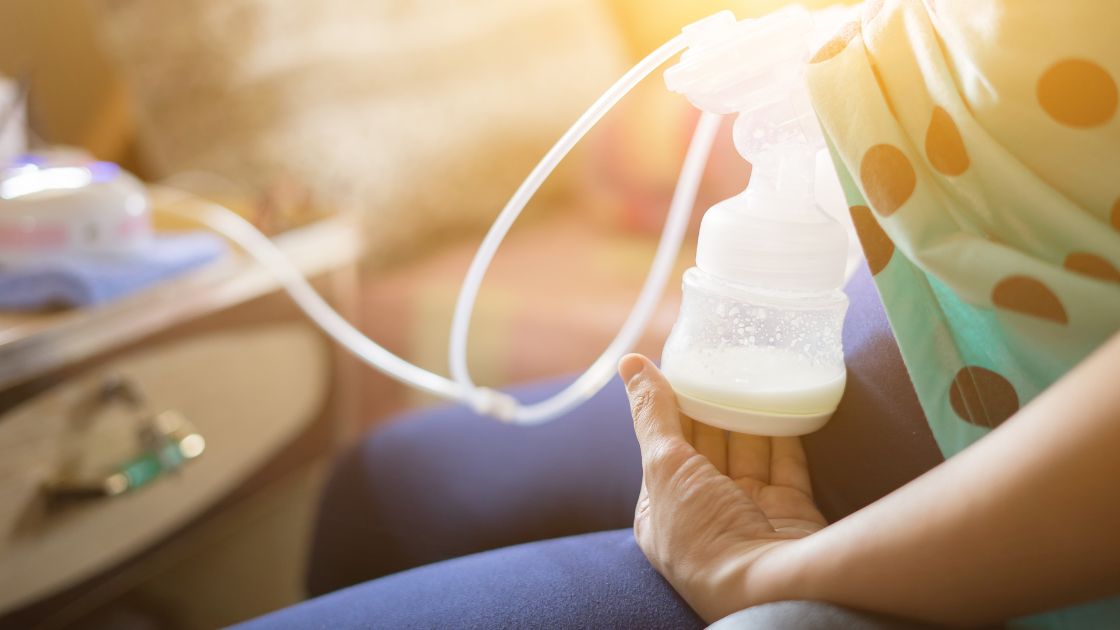
Follow the first-in, first-out principle: Always defrost the bottle with the longest expressed date on the label, as the quality of breast milk can degrade over time.
Thawing Refrigerated Breast Milk
Thawing Frozen Breast Milk
If there is a cloudy white precipitate after defrosting breast milk by moving it from the freezer compartment to the cooler compartment, the milk is spoiled and cannot be used.
Conversely, if there is a thin layer of scum floating on the surface of the bottle, the milk is still usable. This thin layer is the essential fat in breast milk. The mother just needs to gently shake the film to dissolve it in the milk before giving it to the baby to suck.
Some Important Notes When Defrosting Breast Milk
Frozen breast milk shouldn't be defrosted at room temperature: Bacteria can get in if you thaw breast milk at room temperature, so thaw it only in the fridge.
Do not defrost breast milk by heating it or using the microwave: High heat, microwaves, and electromagnetic waves destroy the essential nutrients, enzymes, and immune antibodies of breast milk.
Avoid shaking the defrosted bottle aggressively or making sudden temperature adjustments: Breast milk will lose the function of antibodies and proteins that protect the baby's body. Plus, it will lose some of the nutrients in the milk if it is shaken vigorously or has a sudden change in temperature.
After thawing, store breast milk at room temperature for up to 4 hours or in the refrigerator for up to 24 hours. If your baby doesn't use up all the defrosted milk in 24 hours, you can throw away the leftover milk.
Frequently Asked Questions
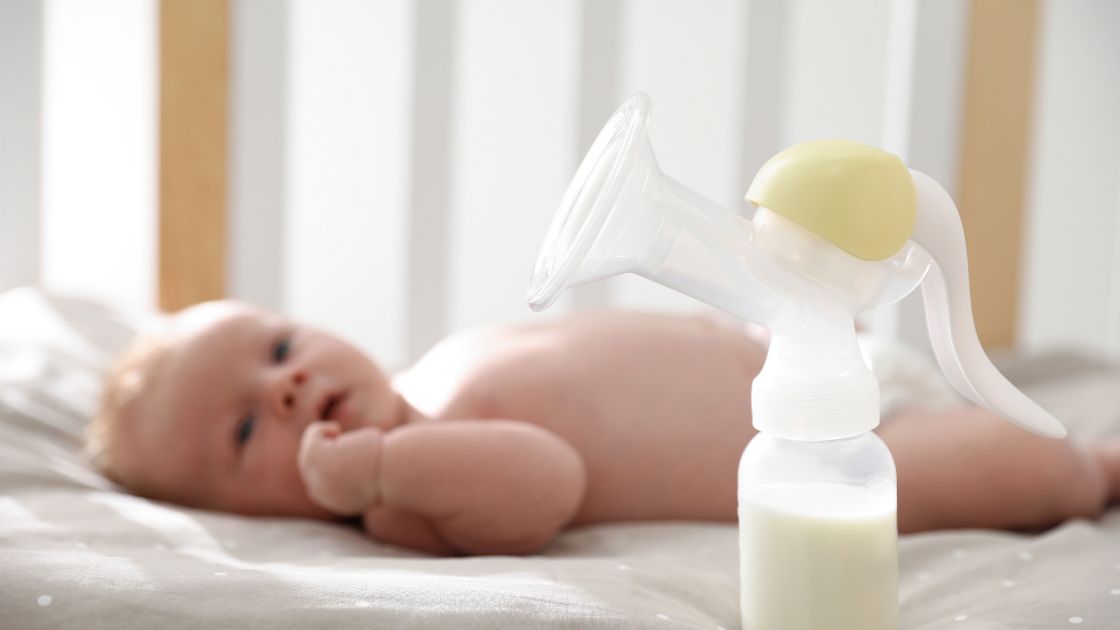
When the milk comes in a lot, the mother can pump it out and store it for your baby to use later. However, how long can breast milk be stored in the refrigerator after being pumped? Is it safe for babies to use? How do know if it's spoiled or not? Let's find the answers to your questions!
Is Frozen Breast Milk Good?
Many nursing mothers choose to freeze breast milk to help stimulate more milk production and facilitate breastfeeding. It is convenient when the mother is busy or the baby cannot directly feed on breast milk.
Frozen breast milk, even though it is expressed from the mother's breast, is not as good as breastfeeding directly because freezing will lose the lipase enzyme to digest fats, significantly reducing the number of other components that are resistant to infectious diseases.
Besides, depending on the age of the baby, the composition of breast milk will also change to suit the needs of the child's development, so children using frozen milk for a few months may no longer be suitable for age needs.
However, the use of frozen breast milk for babies can affect the health of children, typically gastrointestinal infections if breast milk is not frozen properly.
Does Frozen Milk Change Color?
Frozen milk will have a slightly different color than freshly pumped milk. Usually, frozen breast milk will turn bluish, yellow, or brown when refrigerated. It is a normal thing, so you can rest assured of that.
Breast milk stored in the refrigerator or freezer will be separated before giving it to the baby. The mother just needs to shake it gently to mix them together.
Can You Add Fresh Breast Milk To Already Frozen Breast Milk?
It is absolutely fine to add freshly expressed breast milk to frozen milk or breast milk to keep it refrigerated. But before adding it to the old milk, it is necessary to chill the freshly expressed or pumped milk in the refrigerator or quick ice chiller for at least an hour.
Never add warm and freshly pumped milk to frozen milk as it will thaw the frozen milk and keep the milk separate for each day.
Why Does Frozen Milk Have A Strange Smell?
The process by which the enzyme lipase inhibits the growth of harmful bacteria leads to reactions that break down fats and release fatty acids that sometimes change the scent of breast milk, causing frozen milk to have a strange smell.
Nevertheless, moms can rest assured that babies can still use flavored frozen milk normally without harm if the mother freezes it properly.
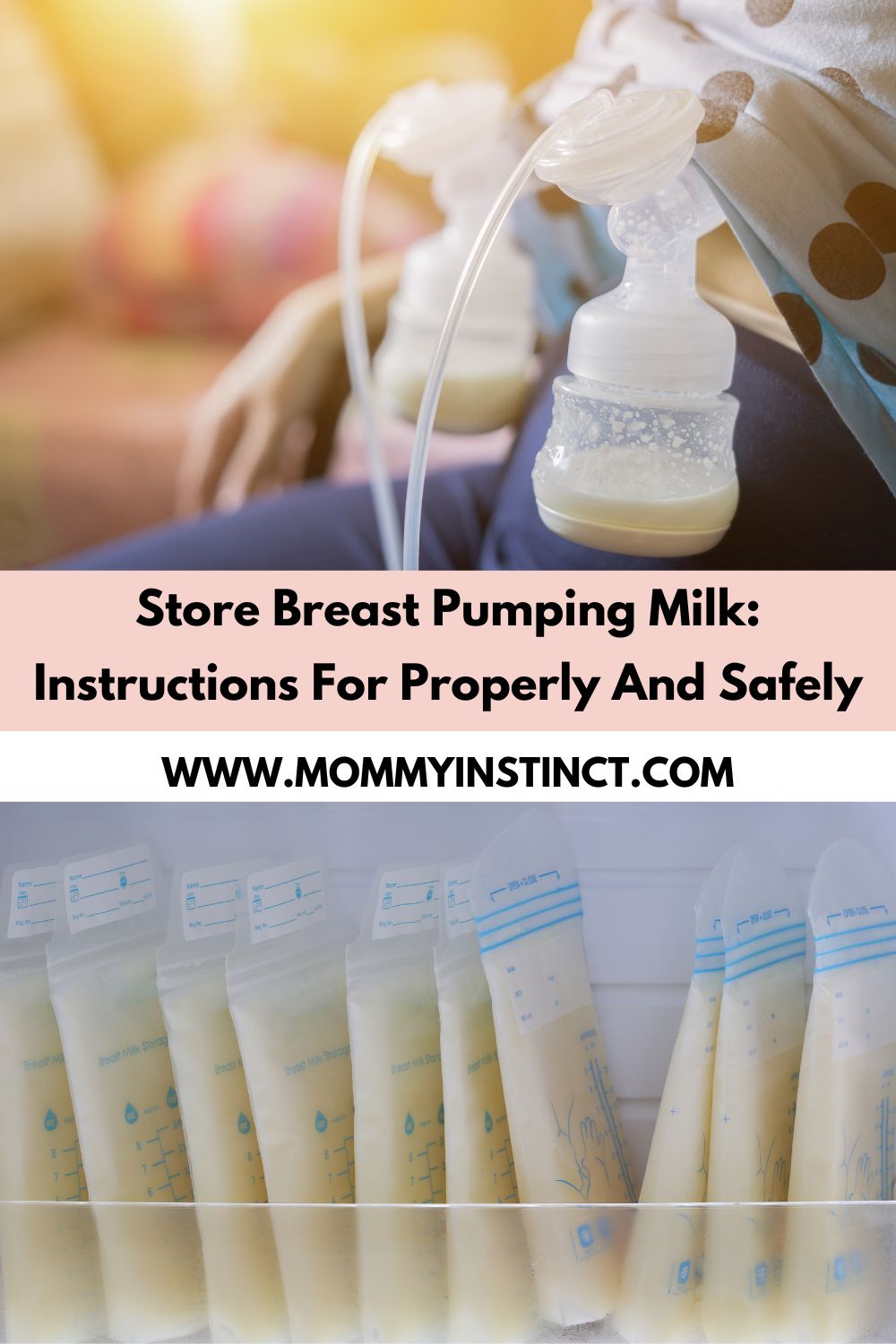
Closing
On the whole, there are various factors that affect breast pumping milk storage. For example, the content of milk, room temperature, the regulated temperature in the milk storage fridge, and the cleanliness of the environment.
All those elements can affect how long breast milk can be safely stored. While freezing can keep food safe for a very long time. However, following the recommended shelf time and storage requirements for breast milk is important to ensure breast milk has the best quality for your baby.
Hence, properly storing breast milk seems simple, but if moms do not learn to store breast milk carefully, it is very easy to make mistakes that affect the quality of the breast milk and the health of the newborn.
Therefore, every mother needs to be equipped with the right knowledge about breast pumping milk storage to ensure the most abundant and safest nutrition for the baby.

